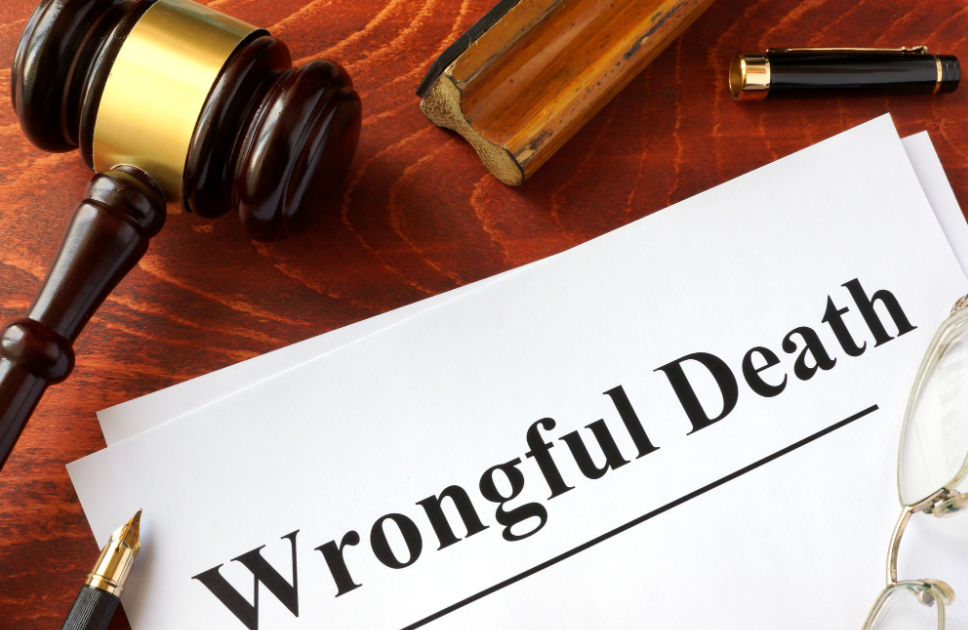Understanding Wrongful Death: What It Means and How to Seek Justice

Losing a loved one is an incredibly difficult experience, and when that loss is caused by someone else’s negligence or wrongdoing, it can be even more devastating. In such cases, the legal term “wrongful death” comes into play. But what exactly does this term mean and how can one seek justice for such a tragic loss?
Understanding wrongful death and the legal recourse available to those impacted by it is crucial for anyone facing such a situation. A wrongful death attorney can guide you through the legal process and help you fight for the justice your loved one deserves.
This article aims to provide a comprehensive overview of wrongful death, including its definition, common causes, and the steps one can take to seek justice. Whether you have lost a family member or are simply looking to gain a better understanding of this legal concept, this article will explore the complexities of wrongful death and provide valuable insights into the legal options available.
Wrongful Death Defined: Unexpected Loss
Losing a loved one is always a devastating and emotional experience. However, when that loss is the result of someone else’s negligence or intentional actions, it is important to understand the legal concept of wrongful death.
Wrongful death is defined as the untimely and preventable death of an individual caused by the wrongful act, negligence, or misconduct of another party. This includes incidents such as car accidents caused by reckless drivers, medical malpractice, workplace accidents, and even criminal actions.
It is crucial to recognize that wrongful death cases are not just about seeking justice for the deceased, but also about providing compensation and support for the surviving family members who may have been left with financial burdens, emotional trauma, and loss of companionship. Understanding the legal aspects of wrongful death is essential for those who wish to seek justice and hold the responsible parties accountable for their actions.
Who Can File a Claim?
In the process of seeking justice for a wrongful death, it is important to understand who is eligible to file a claim. The laws regarding who can file a claim vary depending on the jurisdiction, but generally, immediate family members such as spouses, children, and parents of the deceased are allowed to file a wrongful death claim.
In some cases, extended family members or dependents who were financially supported by the deceased may also be eligible to file a claim. It is worth noting that if the deceased did not have any immediate family members or dependents, a representative of their estate may be able to file a claim on behalf of the deceased. Consulting with an experienced attorney who specializes in wrongful death cases is crucial in determining the eligibility of filing a claim and navigating the legal complexities involved.
Proving Negligence in Court
To establish negligence in a court of law, certain elements must be proven. The first element is the duty of care, which states that the defendant owed a legal obligation to the victim to act in a reasonable and responsible manner.
The second element is a breach of duty, meaning the defendant failed to fulfill their duty of care. This can be shown by demonstrating that the defendant acted in a way that a reasonably prudent person in the same situation would not have.
The third element is causation, where it must be established that the defendant’s breach of duty directly caused the harm or injury suffered by the victim. Lastly, the fourth element is damages, which refers to the actual harm or injury that resulted from the defendant’s actions or negligence. Providing sufficient evidence and expert testimony is crucial in proving negligence in court and obtaining a favorable outcome in a wrongful death case.
Compensation for Financial Losses
In wrongful death cases, compensation for financial losses is an important aspect that seeks to provide some measure of economic support for the surviving family members. These financial losses can include various factors such as medical expenses incurred prior to the victim’s death, funeral and burial costs, loss of income and future earning potential, and the loss of the deceased’s companionship, guidance, and support.
It is essential to accurately calculate and present evidence of these financial losses to ensure a fair and just compensation for the family’s economic hardship resulting from the wrongful death. Working with experienced legal professionals who specialize in wrongful death cases can help navigate the complexities of seeking compensation for financial losses and ensure a thorough and comprehensive evaluation of the family’s economic damages.
Seeking Justice for Emotional Distress
Emotional distress can manifest in various ways, including but not limited to, severe grief, depression, anxiety, and post-traumatic stress disorder (PTSD). Seeking compensation for emotional distress is a crucial component in holding responsible parties accountable for their actions and providing some measure of solace for the pain and suffering endured by the family.
To pursue a claim for emotional distress, it is essential to gather and present compelling evidence that demonstrates the extent of the emotional harm inflicted and the lasting repercussions it has had on the lives of the surviving family members. With the guidance of skilled legal professionals who understand the complexities of wrongful death cases, families can navigate the legal process and seek the justice they deserve for the emotional distress caused by the loss of their loved one.
Time Limits for Filing Claims
In the pursuit of justice for wrongful death cases, it is imperative to understand the importance of adhering to time limits for filing claims. These time limits, also known as statutes of limitations, establish a specific period within which a claim must be filed in order to be considered valid. Failure to meet these time limits can result in the claim being dismissed, barring the family from seeking legal recourse.
It is crucial to consult with knowledgeable attorneys who specialize in wrongful death cases to determine the applicable time limits for filing a claim in your jurisdiction. By acting promptly and ensuring compliance with these time limits, families can maximize their chances of obtaining the justice and compensation they deserve for the loss they have suffered.
Importance of a Skilled Attorney
A skilled attorney is paramount when navigating the complex legal landscape of wrongful death cases. Their expertise and experience can make a significant difference in the outcome of a claim.
A skilled attorney possesses a deep understanding of the laws surrounding wrongful death, including the burden of proof, liability, and potential damages. They are well-versed in the legal strategies necessary to build a strong case on behalf of the surviving family members. With their guidance, families can effectively navigate the legal process, ensuring that their rights are protected and that they have the best opportunity to seek justice for their loved ones.
Additionally, a skilled attorney can negotiate with insurance companies, opposing counsel, and other parties involved, advocating fiercely for fair and just compensation. Their dedication to their clients and their commitment to upholding justice make the presence of a skilled attorney invaluable in the pursuit of justice for wrongful death cases.
Conclusion
Understanding what constitutes a wrongful death is crucial for seeking justice and holding those responsible accountable. While the loss of a loved one is never easy, knowing the legal definitions and options available can help navigate the process and find closure. It is important to seek the guidance of a trusted and experienced attorney in wrongful death cases to ensure your rights and the rights of your loved ones are protected. Let us work towards a society where wrongful deaths are prevented and the victims and their families receive the justice they deserve.






